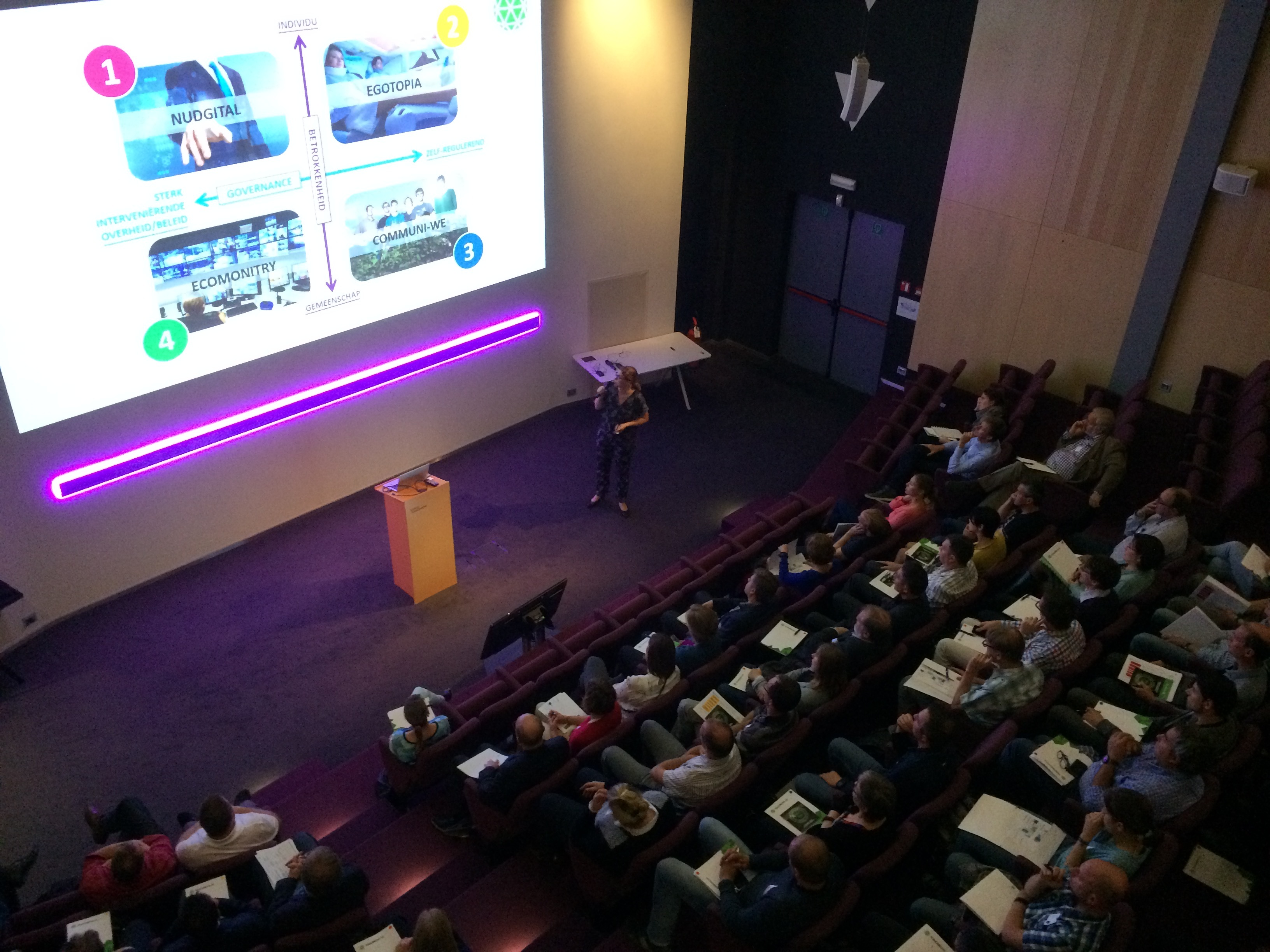Nokia has struggled since Apple introduced the iPhone. Kodak went bankrupt after the company failed to get on board with digital cameras. Today, Uber is rocking the taxi and transportation world, while AirBnB is shaking things up in the hotel industry.
These are only a few examples of developments that are not usually on the radar of businesses, but that could take down an entire company. Responding to trends is no longer enough to stay afloat in this rapidly changing society, as trends are facts, they are visible.
We believe that looking beyond those trends is absolutely essential from an economic point of view. ‘In five years’ time, 50 percent of business will be from services and products that are not even around yet today. Companies are investing huge amounts of money and time in developing ten-year business plans. They are looking at the past and then extrapolate future market evolutions from their experience. Ten percent less or more, a new trend here and there... It’s all very recognisable. However, this just doesn’t work anymore. The biggest threat for businesses is the high degree of uncertainty.

NO SCIENCE FICTION
Enter scenario planning. No science fiction, but a structured approach towards preparing a business for the distant future. We assist businesses such as Randstad, De Lijn, bpost, ABB, the Belgian Farmers’ Union, Eni and Colruyt Group with this exercise. Depending on the sector or industry, a business may be planning for a future as far away as 2030, 2040 or 2050.
Prepare your business by considering potential developments, future opportunities, and risks.
Retail businesses mostly focus on 2030, whereas energy providers are looking as far ahead as 2050. No one can predict the future. However, you can prepare your business by considering potential developments, future opportunities, and risks. This way, a business can anticipate what lies ahead and increase its flexibility. If you are running a transport business with a eet of 500 trucks, then now is the time to start preparing a network of autonomous car or drones for parcel deliveries.
Even successful businesses are not invincible. Only by stepping away from familiar scenarios and seeing eye-to-eye with future uncertainties, there will be room for your business to be truly innovative. Seeing the unexpected lies at the core of scenario planning. It creates a culture of innovation within any enterprise.
SCENARIOPLANNING: HOW DOES IT WORK?
Take a 360-degree look at your business, internally and externally. Who is in your transactional environment? Suppliers, employees, customers, competitors, government departments, lobbyists, etc. These are all people you can shake hands with.
Next, examine the contextual environment of your business: demographics, technologies, international trade, energy prices, ecology, legislation, social and geopolitical changes, etc. All of these factors are beyond your control yet they hold the potential to turn your business upside down in the blink of an eye.
With scenario planning, these uncertainties are clustered based on how they may impact your business. Using these clusters, it is then possible to create four ‘worlds’.
EXAMPLE
Building a new hospital will cost you 500 million euros. It easily takes twenty years before the hospital is fully operational. What type of hospital will you build? We know that obesity is a growing problem, that there will be less hospital staff, and that surgery will be less invasive. Those are trends, so there is little uncertainty regarding these matters.
Then it’s time to face the uncertainties. Both extremes are represented as the X and Y axes in a graph. For instance: everyone is poor or everyone is rich, everyone is concerned about their health or no one is concerned about their health. If no one is concerned about their health but they are all rich, then go ahead and build a massive hospital. You will be dealing with very complex illnesses and the hospital will require numerous teams of specialists and vast amounts of hi-tech equipment to be able to heal all those patients. Scenario planning allows you to draw different conclusions for each ‘world’ or scenario.’
STEPPING OUT OF YOUR COMFORT ZONE
Taking a one-sided view on the world will not help the scenario planning process. Uncovering and learning to interpret the early warning signs is simply impossible if you are solely relying on the exercise to confirm your preconceived vision of the future. Scenario planning promotes mental exibility among the board members, managers and staff of an organisation.
This kind of flexibility is a prerequisite to achieving strategic flexibility, which will build your competitive advantage. Scenario planning builds a mindset that helps create a dynamic corporate learning environment that embraces future thinking. By using extremes, businesses are forced to step out of their comfort zone.
For instance, what if oil prices were $2/barrel or $500/barrel by 2030? What would this do to your business? What are the uncertainties that impact your business the most? Terrorism, health, energy, geopolitics, technology, etc.? This creates a number of di erent ‘worlds’ that you can start anticipating today.
No matter what happens, you will be prepared. You can see the world evolving in a certain direction and make adjustments to your business accordingly. That is what scenario planning is all about.

How can AI be effectively integrated in the work process?
Embracing AI tools can elevate our professional capabilities and boost efficiency and productivity. However, mastering these tools takes time, commitment, and a willingness to experiment and learn through trial and error. Here are some practical tips & tricks to kickstart your AI journey.

Navigating the first stress-test of scenario planning
Last week, I had the privilege of taking another enlightening journey through the realm of scenario planning and future strategy with a group of high-flyers from different disciplines. It was the first time this group subjected their carefully prepared scenarios to a stress test. This moment, brimming with a delightful mix of joy, anticipation, and a touch of nervousness, was a milestone for all involved.

